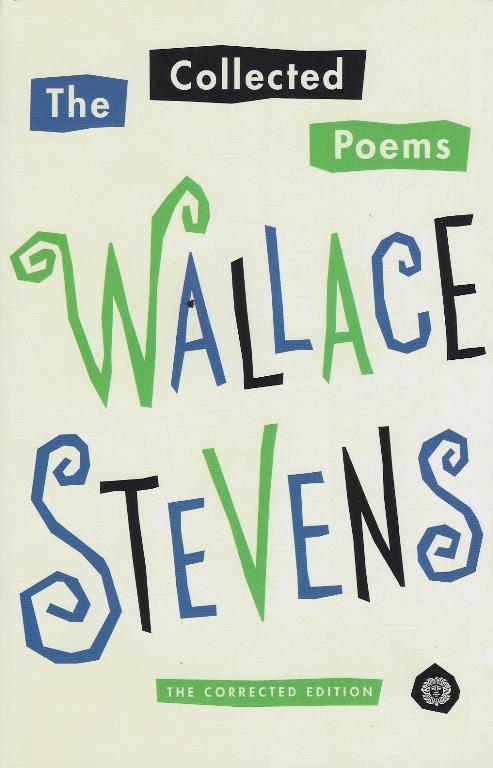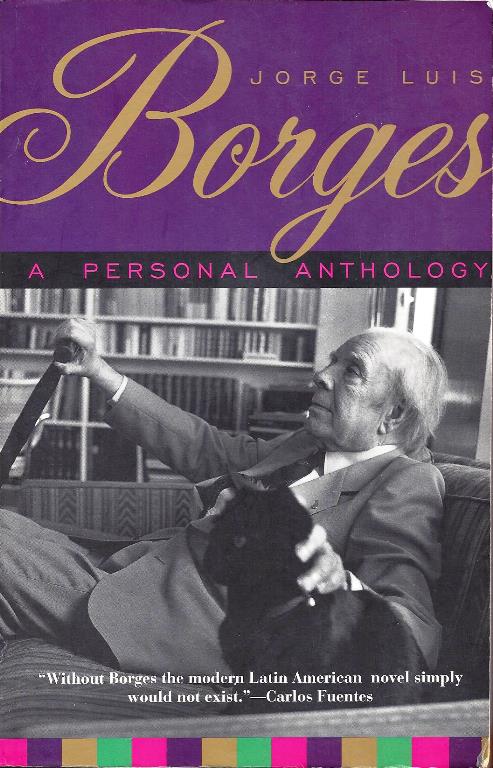
|
Thơ
Mỗi
Ngày
Baudelaire in Brussels
Frederick Seidel Issue 219, Winter 2016 Some people say sex is like riding a rainbow. Maybe theirs is. I say I fall on a grenade each time. My rainbow-on-a-runway took off practically Straight up from the infirmary To reach the thermosphere, And blew up above Brussels, Paris, etc.— And here’s the nurse. Nurse! I had a stroke. I had another stroke. I can’t lift my prepuce head from the bed. Someone said my poison poems Are flowers someone brought into the room, Flowers that leave behind a sonic boom. Baudelaire ở Brussels
Có người phán sex, [cưỡi em], thì cũng giống như cưỡi 1 cái cầu vồng! Có thể của họ thì như thế Với tôi, thì là, tình yêu như trái phá Con tim mù lòa Nghĩa là, Tớ vấp phải 1 trái lựu đạn Tớ thấy mình bay một phát Từ bịnh viện Lên tới bầu khí quyển thermosphere Và nổ 1 phát Đâu đó bên trên Brussels, Paris etc. - Và đây là y tá. Y tá! Tớ bị cú stroke Cú nữa Tớ không làm sao nhấc cái đầu bao qui đầu khỏi giường Có người nói những bài thơ thuốc độc của tớ Là hoa ai đó mang vô phòng Những đóa hoa bỏ lại đằng sau 1 cú “bùm” 1 phát! POEMS FEBRUARY 6, 2017 ISSUE
The infinite yawns and keeps
yawning. THE INFINITE Is it sleepy? Does it miss Pythagoras? The sails on Columbus's three ships? Does the sound of the surf remind it of itself? Does it ever sit over a glass of wine and philosophize? Does it peek into mirrors at night? Does it have a suitcase full of souvenirs stashed away somewhere? Does it like to lie in a hammock with the wind whispering sweet nothings in its ear? Does it enter empty churches andlight a single candle on the altar? Doe it see us as a couple of fireflies playing hide-and-seek in a graveyard? Doe it find us good to eat? Note: Bài thơ mới nhất của Charles Simic. Hết credit, GCC phải dùng 1 cái PC khác, mới đọc được. Và bèn chôm liền! Bất Tận
Bất Tận ngáp suốtBuồn ngủ ư? Hay nhớ Pythagoras? Những chuyến vượt biển của ba con thuyền của Columbus? Tiếng sóng làm nó nhớ, chính nó? Nó đã từng ngồi nhâm nhi một ly rượu vang Và triết lý vụn? Đêm đêm, nó liếc xéo, gương? Nó có cái cà táp đầy những kỷ niệm Dzím đâu đó? Nó có bao giờ thèm ngả lưng 1 phát Trên võng Nghe tiếng gió thầm thì những hư vô ngọt ngào? Nó đã từng vô 1 ngôi nhà thờ vắng hoe Và đốt 1 cây đèn cày nơi bàn thờ? Nó có nhìn chúng ta chơi trò hú tìm nơi nghĩa địa Với mấy con đom đóm? Nó có thèm, đợp, chúng ta? Note: Bất Tận? Đang đọc Borges, sách Tựa, bèn chơi luôn 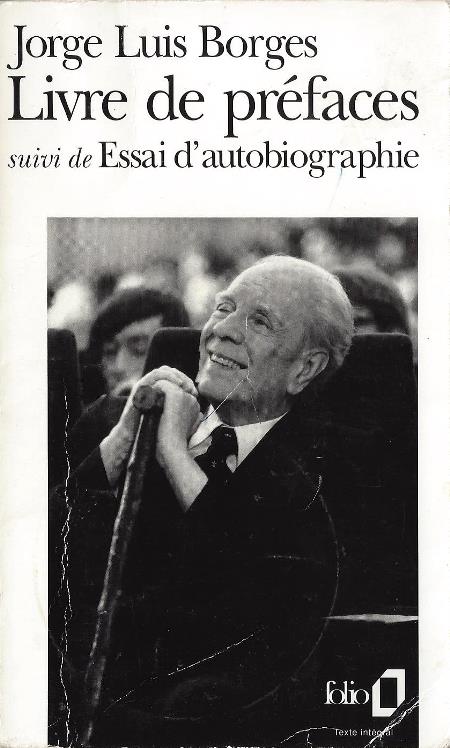
Paris. Nov, 99, lần qua Tây gặp HPA, tá túc nơi Kiệt Tấn, chùa Khánh Anh... Whitman là số nhiều rồi, nhưng như thế chưa đủ, ông ta quyết định, tớ là vô cùng tận. Tuyệt! Whitman était déjà pluriel; l'auteur décida qu'il serait infini. Il fit du héros de "Feuilles d'herbe" une trinité ; il lui adjoignit un troisième personnage, le lecteur, le changeant et successif lecteur. Celui-ci ne cesse de s'identifier au protagoniste de l'oeuvre; lire Macbeth c'est d'une certaine facon être Macbeth; un livre de Victor Hugo s'intitule Victor Hugo par un témoin de sa vie; Walt Whitman fut, semble-t-il, le premier à utiliser jusqu'au bout, jusqu'au bout interminable et complexe, cette identification momentanée….. 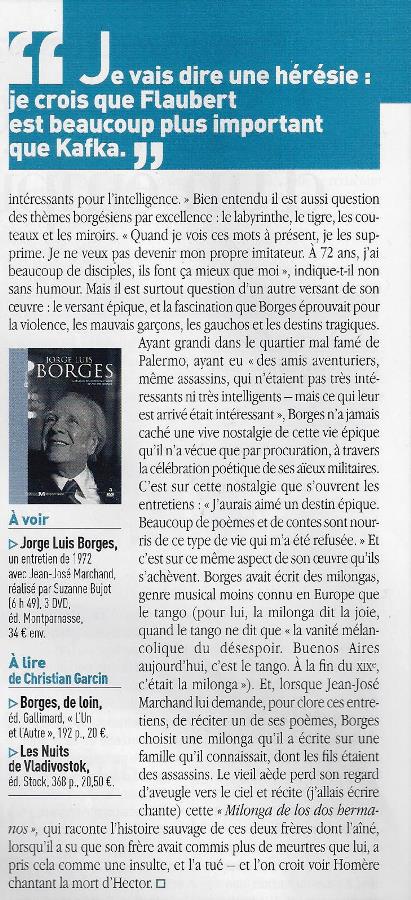
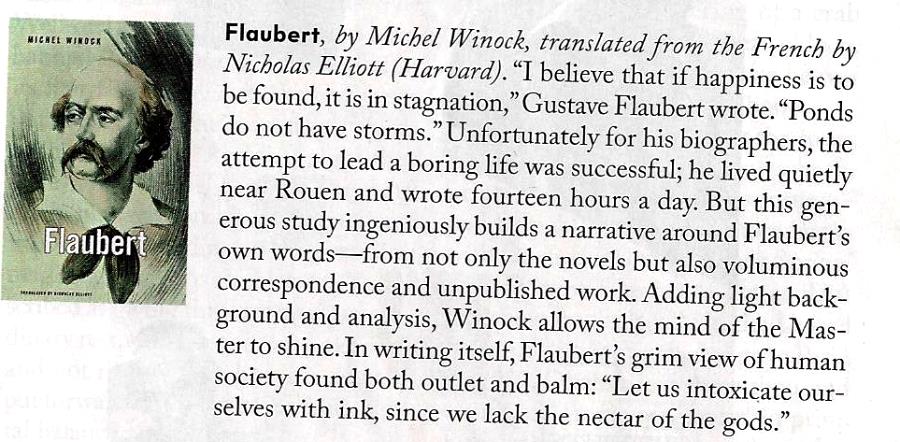
Tớ
sẽ nói một điều dị giáo, lăng mạ, không giống ai....
: Tớ tin là Flaubert quan trọng hơn nhiều so với Kafka.
ML, Mai 2013 The
New Yorker Briefly Noted, Dec 12, 2016
Tạ Chí Đại Trường: một lần nữaTôi nghĩ, bằng toàn bộ cuộc đời mình, Tạ Chí Đại Trường cho thấy chính xác điều ngược lại. Điều ngược lại này nói một cách tường minh là: người ta không làm được gì nếu có đầy đủ mọi thứ gì tưởng chừng như là cần phải có. Những năm dài không có sách để đọc lại là cơ hội cho Tạ Chí Đại Trường thoát khỏi vòng (sự "thoát khỏi vòng" này cũng đặc biệt rõ ở Tư Mã Thiên, ta sẽ sớm nói đến).Note: Ý lạ. Lạ nữa, là, cái tay viết tiểu sử Flaubert, cho biết, cuộc đời Thầy, the Master, cũng y chang như thế. Ao thì lấy đâu ra bão tố? Cả 1 cuốn tiểu sử của Bậc Thầy Flaubert - nhớ, hình như Borges phán, tôi sợ rằng Flaubert còn bảnh hơn Kafka - là dựa vào câu phán, cùng là cuộc đời nhàm chán của F: chàng ngồi lỳ 1 đống, viết 1 ngày 14 tiếng! Hãy để cho chúng tớ ghiền mực, thay vì xì ke, bởi vì nhân loại làm gì có "riệu" tiên, của những vị thần? Note: Bài trên số ML dẫn trên, giới thiệu băng "vidéothèque de Babel": 7 tiếng đồng hồ về Borges. Người phán nhiều câu thật mê. Tôi mới yêu Buenios Aires làm sao, J'aime tellement B.A., có lẽ đần độn nhất, une des plus laides, nhạt nhòa nhất, des plus blêmes, trên thế giới, đến nỗi, nhiều khi tôi hoài nhớ nó, ngay trong khi đang ở nó: Tuyệt! Đúng là tâm trạng của Trịnh Công Sơn, khi viết về Saigon, sau 30 Tháng Tư: Em ra đi nơi này vẫn thế. Đi 1 phát, là mất em! Borges chẳng đã từng viết về những kẻ sở hữu đủ thứ bản đồ, trái cầu, atlas... thế giới, mà không bao giò dám đi quá đầu ngõ! Đi mãi xa mà vẫn quanh quẩn đâu đây! Kỷ niệm 100 năm,
sinh nhật Jorge Luis Borges (August 26, 1899- August 26, 1999) 
Hiếm
nhà văn được như Borges: ông đi vào truyền thuyết,
ngay từ khi còn sống, không
như một nhà văn nổi tiếng, mà là một huyền tượng.
Trong chuyện Tàu có trường hợp tương tự: Để trốn tránh
cơn giận dữ của nhà vua, và cái chết tiếp theo đó,
Wang Fo rời cuộc đời, bước vào bức tranh ông vẽ. Trường
hợp Borges rắc rối hơn: Sau khi trở thành huyền tượng, ông
tiếp tục sống thêm nhiều năm, làm phiền cho chính
ông trước tiên, như thể có hai, Borges, và
"Borges", và ông đành phải chấp nhận sự nhập nhằng,
đôi khi cũng cố gắng trần tình: Không phải tôi
đâu, mọi chuyện là do gã kia, Borges. Tôi, tôi
đang đi trên đường phố Buenos Aires, nhẩn nha nhìn phố xá.
Tôi nhận được tin tức của Borges, qua bưu điện, nghe đâu
ông ta được đề nghị một chân nào đó, hay là
được đưa vào một cuốn tiểu sử... tôi thích những chiếc
đồng hồ bằng cát, thích nhâm nhi ly cà-phê,
thơ xuôi Stevenson, ông ta cũng chia sẻ những sở thích
tương tự... Của đáng tội, nếu nghĩ rằng giao tình giữa
tôi và ông ta tồi tệ, tôi sống và mặc
kệ chuyện đời, miễn sao Borges tha hồ thêu dệt văn chương của 'ông
ta', vậy là đủ cho tôi rồi (Borges và Tôi). V/v Golem. Borges Golem
Note:
Trong 1 bài viết hồi còn giữ mục Tạp Ghi cho tờ
Văn Học, Gấu có đi 1 bài về Borges, từ 1 cái
nguồn tiếng Tẩy, và có dịch từ Golem, là Phôi
Thai.
Nhảm! Golem là tên 1 con vật tưởng tượng, và nó có nghĩa - "Golem" was the name given the man created out of a combination of letters; the word literally means" an amorphous or lifeless substance." - và là tên 1 bài thơ của Borges. Để tạ lỗi , lần này, đi 1 bài trong Những Con Vật Tưởng Tượng, trong có con “Golem”, và 1 bài thơ của Borges, có tên là Golem. http://www.tanvien.net/tgtp/tgtp11_borges_toi.html Phôi thai Ở Crayle, người Hy-lạp - liệu anh ta có lầm không? - Khi nói chữ là mẹ của sự vật: Trong những con chữ hồng có mùi thơm của hoa hồng, Và dòng Nil luồn lách qua những con chữ của từ Nil. Vậy thì có một Cái Tên khủng khiếp, từ đó yếu tính của Thượng Đế được mã hóa - và đó là một từ của con người, Bảng mẫu tự đánh vần, bàn tay ghi lại; Kẻ nói lên có Sức Mạnh-Toàn Năng. Những ngôi sao biết Cái Tên này. Adam cũng vậy, Ở Khu Vườn; nhưng liền đó, anh ngỡ ngàng và hoang mang: Tội lỗi đục gỉ anh ta, những người thần bí giáo bảo vậy; Mọi dấu vết đến đây là ngưng. Như thế đấy. Jorge Luis Borges Thi Phẩm (1925-1965). (Theo bản tiếng Pháp của Nestor Ibarra, Gallimard). (1) (1) LE GOLEM
Dans Cratyle, le Grec - et se trornperait-il ? _ Dit que le mot est l'archétype de la chose: Dans les lettres de rose embaume la fleur rose, Et le Nil entre en crue aux lettres du mot Nil. Un Nom terrible existe donc, par quoi l'essence De Dieu même est chiffrée - et c'est un mot humain, Qu'épelle l'alphabet, que peut tracer la main; Celui qui le prononce a la Toute-Puissance. Les étoiles savaient ce Nom. Adam aussi, Au Jardin; mais bientôt il s'étrange et se brouille : Le péché, disent les cabalistes, le rouille ; Toute trace s'en perd à la fin. C'est ainsi. Mais la candeur de l'homme et sa soif de merveilles Et son art sont sans fond. Un jour, le peuple élu Tenta de retrouver le vocable absolu ; Toute la juiverie y consumait ses veilles. C'est ici que Juda Léon va survenir, Vive et verte mémoire, et non point ombre vague A peine insinuée au vague devenir : II est resté, Juda Léon, rabbin de Prague. Juda Leon saura ce que Dieu sait. Brulé De génie, il ajoute, il retranche, il permute Les lettres - et l'emporte en fin de haute lutte. II a trouvé Ie Nom. Et ce Nom est la Clé, Est l'Echo, le Palais, et l'Hôte, et les Fenêtres. Un pantin faconné d'une grossière main. Par le Nom recoit vie: il connaitra demain Les arcanes du Temps, de l'Espace et des Lettres. Levant sur l'univers des regards somnolents, L'hominien percut des formes confondues A des couleurs, et dans une rumeur perdues ; Novice, il s'essayait à des gestes tremblants. II se sentit bien tôt prisonnier, comme un homme, D'un sonore filet: l'Après et l'Aujourd'hui, Et la Droite et la Gauche et le Plus et le Comme, Le Maintenant, le Cependant, le Moi, le Lui. Mais comment désigner la rude créature? Le cabaliste-Dieu la sumomma Golem. (Tout ce que je rapporte est constant, et figure En quelque endroit du docte ouvrage de Scholem.) Voici mon pied. ton pied ... Patient pédagogue, Le rabbin au Golem apprenait l'univers. II se passa trois ans avant que le pervers Sut balayer tant bien que mal la synagogue. Fallait-il mieux écrire ou mieux articuler Le Nom? Quelque bévue avait été commise : Haute sorcellerie à la fin compromise, Le candidat humain n'apprit pas à parler. Parcourant le reduit et sa brume morose? . Ses yeux allaient cherchant ceux du magicien ; . Et c'était un regard moins d'homme que de chien; Si les choses voyaient, moins de chien que de chose. Je ne sais quoi de lourd, d'abrupt chez le Golem Faisait fuir sur ses pas le chat de la voisine. (II n'est pas question de ce chat dans Scholem ; Cependant, a travers les ans, je le devine.) Filial, Ie Golem mimait l'officiant, Et tel son dieu vers Dieu levait ses paumes graves; Parfois d'orientaux salamalecs concaves Longuement l'abimaient, stupide et souriant. Le rabbin contemplait son oeuvre avec tendresse, Mais non sans quelque horreur. Je fus bien avisé, Pensait-il, d'engendrer ce garcon malaisé Et de quitter l'Abstention, seule sagesse ! Fallait-il ajouter un symbole nouveau A la succession intarissable et vaine ? Une autre cause, un autre effet, une autre peine Devaient-ils aggraver l'eternel echeveau ? A l'heure où passe un doute à travers l'ombre vague Sur le pénible enfant son regard s'arrêtait. Saurons-nous quelque jour ce que Dieu ressentait Lorsque ses yeux tombaient sur son rabbin de Prague? 1958. Trong những con chữ hồng có mùi thơm của hoa hồng Ta mơ tưởng 1 thế giới, ở đó, con người có thể chết vì 1 cái dẩu phảy, Cioran phán Gấu, chết vì một từ! Vẫn chuyện chết vì cái dấu phảy 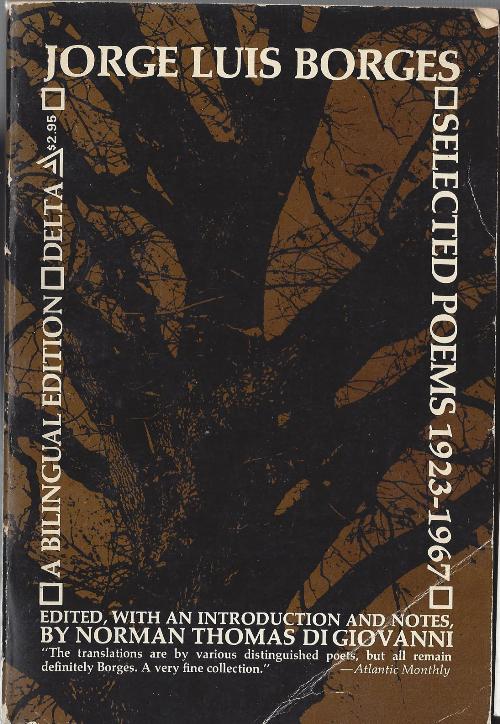
THE GOLEM, p. 111 Joshua Trachtenberg, in Jewish Magic and Superstition, writes that the German Hasidim used "the word golem (literally, shapeless or lifeless matter) to designate a homunculus created by the magical invocation of names, and the entire cycle of golem legends may be traced back to their interest." Line 20. Though Judah Low, the seventeenth-century Jewish rabbi from Prague, is credited with making the Golem, according to Trachtenberg the "legends of the golem were transferred ... to R. Judah Low b. Bezalel, without any historical basis." It turns out that John Hollander, the poem's translator, is a descendant of Rabbi Low (or Loew); after making his translation, Hollander was inspired to write his own Golem poem, "Letter to Borges: A Propos of the Golem," which admirably complements the translation. Hollander's poem is printed in his book The Night Mirror. 39. Gershom Scholem is the distinguished Jewish scholar and author of Major Trends in Jewish Mysticism. Borges' interest in the legend of the Golem dates from an early acquaintance with Gustav Meyrink's Der Golem, the first prose work in German Borges ever read. See Borges' article on "The Golem" in The Book of Imaginary Beings, pp. 112-14. Borges was named Director of the Argentine National Library after the fall of Peron in 1955. Line 37. Paul Groussac (1848-1929) had been a former director of the Biblioteca Nacional and was also a historian and critic whose prose style Borges has greatly admired. A short eulogy, written after Groussac's death, is collected in Borges' Discusión After writing the poem, Borges discovered that Jose Marmol, the nineteenth-century poet and novelist who directed the National Library until his death in 1871, had also gone blind. PHOSPHOR READING BY HIS OWN LIGHT
It is difficult to read. The
page is dark. Yet he knows what it is that he expects. The page is blank or a frame without a glass Or a glass that is empty when he looks. The greenness of night lies on the page and goes Down deeply in the empty glass ... Look, realist, not knowing what you expect. The green falls on you as you look, Falls on and makes and gives" even a speech. And you think that that is what you expect, That elemental parent, the green night, Teaching a fusky alphabet. Wallace Stevens: The Collected Poems Lân tinh đọc bằng ánh sáng
của chính nó
Đọc, căng thiệt Trang sách tối thui Tuy nhiên nó biết, điều hắn muốn biết Trang sách trống trơn, hay chỉ là một cái khung không có cái ly Hay cái ly trống, cạn, chẳng có gì hết, khi nó nhìn Cái màu xanh của đêm nằm trên trang sách và chúi mãi vào cái ly trống trơn, Chúi sâu mãi vào cái ly trống trơn.... Nhìn, tên “hiện thực”, không biết, điều mi mong đợi Cái màu xanh rớt lên mi, khi mi nhìn "Rớt", rớt xuống mãi, "làm", và "cho", ngay cả một câu nói. Và mi nghĩ, đó là điều mi mong đợi Cái phần cha mẹ cơ bản, cái ánh sáng màu xanh Dạy bài học mẫu tự lưỡng tính. The Golem
Imaginary Beings Book The Golem
There
can be nothing accidental in a book dictated by a divine intelligence,
not even the number of its words or the order of their letters; this
was the belief of the kabbalists, who in their zeal to penetrate God's
arcana devoted themselves to counting, combining, and permuting the
letters of Holy Writ. In the thirteenth century, Dante declared that
every passage of the Bible had a fourfold meaning: the literal, the
allegorical, the moral, and the anagogical. John Scotus Erigena had already
affirmed that the meanings of the Scripture, more consistent with the
idea of divinity, were infinite, like the colors of the peacock's tail.
The kabbalists would have approved of that verdict: one of the secrets they sought within the divine text was how to create living beings. It was said of demons that they could shape large, solid creatures like the camel, but not finely wrought, delicate ones, and Rabbi Eliezer denied them the ability to produce anything smaller than a grain of barley. "Golem" was the name given the man created out of a combination of letters; the word literally means" an amorphous or lifeless substance." In the Talmud (Sanhedrin, 65b), we read: If the righteous desired it, they could be creators, for it is written that ... [by means of the Sefer Yetsirah, Book of Creation *], Rabbah created a man, and sent him to Rab Zera. Rab Zera spoke to him, but received no answer. Therefore he said unto him: "Thou art a creature of the magicians. Return to thy dust." R. Hanina and R. Oshaia spent every Sabbath eve in studying the "Laws of Creation," by means of which they created a third-grown calf, (a) and ate it. (b) We owe the fame of the Golem in the West to the Austrian novelist Gustav Meyrink, who wrote the following words in the fifth chapter of his dreamlike work Der Golem: The original story harks back, so they say, to the seventeenth century. With the help of an ancient formula, a rabbi is said to have put together an automatic man and used it to help ring the bells in the Synagogue and for all kinds of other menial work. But he hadn't made it into a proper man; it was more like a kind of animated vegetable, really. What life it had, too, so the story runs, only derived from a magic prescription placed behind his teeth each day, that drew down to itself what was known as "the free sidereal strength of the universe." And as, one evening, before evening prayers, the rabbi forgot to take the prescription out of the Golem's mouth, the figure fell into a frenzy, and went raging through the streets like a roaring lion, seeking whom it might devour. At last the rabbi was able to secure it, and he then destroyed the formula. The figure fell to pieces. The only record left of it was the miniature clay figure that was shown to the people within the old Synagogue. Eleazar of Worms has preserved the formula for making a Golem. The details of the enterprise require twenty-three columns in folio and demand that the maker know" the alphabets of the two hundred twenty-one gates" that must be repeated over each of the Golem's organs. On its forehead one must tattoo the word "EMET" which means "truth." In order to destroy the creature, one would efface the first letter, leaving the word "MET," which means "death." * "By means of mystic combinations of the Divine Name [Talmudic note]. (a) I.e., a calf that has reached one-third of its full growth; others interpret: (i) in its third year; (b) Similarly, Schopenhauer writes: "On page 325 of the first volume of his Zauberbibliothek Horst summarizes in the following way the doctrine of the English visionary Jane Leade: 'Whosoever possesses magical power may, at his will, rule and renew the mineral, plant, and animal kingdoms; thus, if a few wizards came to an agreement, all Creation might return to its paradisal state.'" (On the Will in Nature, VII) Imaginary
Beings Book
The Sphinx
The Sphinx found on Egyptian monuments (called "Androsphinx" by Herodotus, to distinguish it from the Greek creature) is a recumbent lion with the head of a man; it is believed to represent the authority of the pharaoh, and it guarded the tombs and temples of that land. Other Sphinxes, on the avenues of Karnak, have the head of a lamb, the animal sacred to Amon. Bearded and crowned Sphinxes are found on monuments in Assyria, and it is a common image on Persian jewelry. Pliny includes Sphinxes in his catalog of Ethiopian animals, but the only description he offers is that it has "brown hair and two mammae on the breast." The Greek Sphinx has the head and breasts of a woman, the wings of a bird, and the body and legs of a lion. Others give it the body of a dog and the tail of a serpent. Legend recounts that it devastated the countryside of Thebes by demanding that travelers on the roads solve riddles that it put to them (it had a human voice); it devoured those who could not answer. This was the famous question it put to Oedipus, son of Jocasta: "What has four feet, two feet, or three feet, and the more feet it has, the weaker it is?" (1) Oedipus answered that it was man, who crawls on four legs as a child, walks upon two legs as a man, and leans upon a stick in old age. The Sphinx, its riddle solved, leapt to its death from a mountaintop. In 1849 Thomas De Quincey suggested a second interpretation, which might complement the traditional one. The answer to the riddle, according to De Quincey, is less man in general than Oedipus himself, a helpless orphan in his morning, alone in the fullness of his manhood, and leaning upon Antigone in his blind and hopeless old age. (1) This is apparently the oldest version of the riddle. The years have added the metaphor of the life of man as a single day, so that we now know the following version of it: "What animal walks on four legs in the morning, two legs at midday, and three in the evening? Oedipus and the Enigma
Four-footed
at dawn, in the daytime tall, and wandering three-legged down the hollow reaches of evening: thus did the sphinx, the eternal one, regard his restless fellow, mankind; and at evening came a man who, terror-struck, discovered as in a mirror his own decline set forth in the monstrous image, his destiny, and felt a chill of terror. We are Oedipus and everlastingly we are the long tripartite beast; we are all that we were and will be, nothing less. It would destroy us to look steadily at our full being. Mercifully God grants us the ticking of the clock, forgetfulness. -A.S.T. J.L. Borges [Penguin ed] OEDIPUS AND THE RIDDLE
At dawn four-footed,
at midday erect, And wandering on three legs in the deserted Spaces of afternoon, thus the eternal Sphinx had envisioned her changing brother Man, and with afternoon there came a person Deciphering, appalled at the monstrous other Presence in the mirror, the reflection Of his decay and of his destiny. We are Oedipus; in some eternal way We are the long and threefold beast as well- All that we will be, all that we have been. It would annihilate us all to see The huge shape of our being; mercifully God offers us issue and oblivion. [John Hollander] Thomas Di Giovanni ed Nhân Sư và Thai Đố
Rạng đông
bốn chân, giữa trưa thẳng đứngBa chân, lang thang, nơi không gian hổng vào lúc xế trưa Đó là viễn ảnh của Nhân Sư về người anh em con người của Nàng Vào lúc hoàng hôn, chàng khám phá ra, như trước tấm gương Sự tàn tạ và số mệnh của mình Chúng ta là Ơ Đíp, theo 1 cách miên viễn hằng hằng Chúng ta là con thú, dài dài, ba nếp gấp, chứ còn ai nữa ở đây? Tất cả là như thế, và sẽ là như thế, ngoài ra là hư vô Nó sẽ huỷ diệt chúng ta khi nhìn suốt 1 cõi của mình May mắn thay Chúa bèn ban chúng ta Tiếng tích tắc của cái đồng hồ Và Quên lãng The Lamed Wufniks
On the earth
there are, and have always been, thirty-six just men whose mission is
to justify the world to God. These are the Lamed Wufniks. These men do
not know each other, and they are very poor. If a man comes to realize
that he is a Lamed Wufnik, he immediately dies and another man, perhaps
in some other corner of the earth, takes his place. These men are, without
suspecting it, the secret pillars of the universe. If not for them, God
would annihilate the human race. They are our saviors, though they do not
know it. This mystical belief of the Jewish people has been explained by
Max Brod. Its distant roots may be found in Genesis 18, where God says that He will not destroy the city of Sodom if ten just men can be found within it. The Arabs have an analogous figure, the Qutb, or "saint." Note: Ấn bản mới có tí khác ấn bản cũ, GCC được coi là "Thánh"! The Lamed Wufniks There
are on earth, and always were, thirty-six righteous men whose mission
is to justify the world before God. They are the Lamed Wufniks. They
do not know each other and are very poor. If a man comes to the knowledge
that he is a Lamed Wufnik, he immediately dies and somebody else, perhaps
in another part of the world, takes his place. Lamed Wufniks are, without
knowing it, the secret pillars of the universe. Were it not for them,
God would annihilate the whole of mankind. Unawares, they are our saviors.
This mystical belief of the Jews can be found in the works of Max Brod.
Its remote origin may be the eighteenth chapter of Genesis, where we
read this verse: "And the Lord said, If I find in Sodom fifty righteous
within the city, then I will spare all the place for their sakes."
The Moslems have an analogous personage in the Kutb. 
Người Què Gánh Tội
Trên thế giới, có, và luôn
luôn có, 36 người què, còn được gọi là
36 vì công chính, mà sứ mệnh của họ, là,
biện minh thế giới, trước Thượng Đế.
Họ là những tên què gánh tội, Lamed Wufniks. Họ không biết nhau, và rất ư là nghèo khổ. Nếu có 1 tên biết rằng mình là tên què gánh tội, là bèn lập tức, ngỏm củ tỏi. Và một người khác, có lẽ ở đâu đó trên thế giới, thế chỗ anh ta. Không có 36 tên cà chớn này, là liền lập tức, Thượng Đế xóa sổ thế giới. 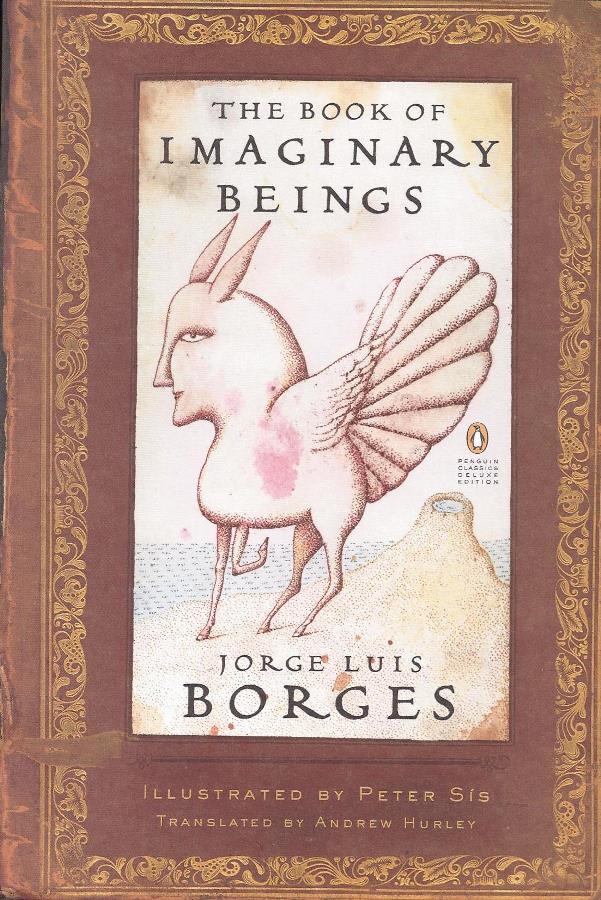
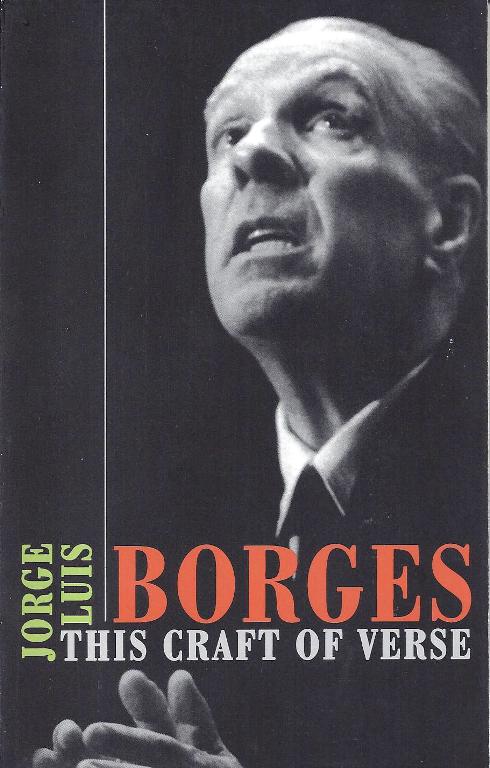
THE GOLEM
If
every name is (as the Greek maintains In the Cratylus) the archetype of its thing, Among the letters of ring, resides the ring, And in the word Nile all the Nile remains. Then, made up of vowels and consonants, Encoding God's essence, should exist some Name Whose exact syllables and letters frame Within them, terribly, Omnipotence. Adam and all the stars had known it, placed There in the Garden. The corrosive rust Of sin (cabalists say) has long effaced The Name that generations since have lost. Human innocency and human guile Are boundless: it is known that a day came When the Chosen People pursued the Name Over the wakeful ghetto's midnight oil. Unlike the way of those who, as in fog, Beam a dim shadow in dim history, Green and alive remains the memory Of Judah, the Hohe Rabbi Low of Prague. Yearning to know that which the Deity Knows, the Rabbi turned to permutations Of letters in complicated variations, And finally pronounced the Name which is the Key, The Entry Gate, the Echo, Host, and Mansion, Over a dummy at which, with sluggish hand, He labored hard that it might understand Secrets of Time, Space, Being, and Extension. The simulacrum raised its heavy, lowered Eyelids and perceived colors and forms; It understood not; lost in loud alarms, It started to take groping paces forward. And like ourselves, it gradually became Locked in the sonorous meshes of the net Of After, Before, Tomorrow, Meanwhile, Yet, Right, Left, You, Me, and Different and Same. (The cabalist from whom the creature took Its inspiration called the weird thing Golem- But all these matters are discussed by Scholem In a most learned passage in his book.) The rabbi revealed to it the universe (This is my foot; that's yours; this is a log) And after years of training, the perverse Pupil managed to sweep the synagogue. Perhaps there was a faulty text, or breach In the articulation of the Name; The magic was the highest-all the same, The apprentice person never mastered speech. Less a man's than a dog's, less a dog's, well, Even than a thing's, the creature's eyes Would always turn to follow the rabbi's Steps through the dubious shadows of his cell. Something eerie, gross, about the Golem, For, at his very coming, the rabbi's cat Would vanish. (The cat cannot be found in Scholem; Across the years, I divine it, for all that.) Toward God it would extend those filial palms, Aping the devotions of its God, Or bend itself, the stupid, grinning clod, In hollow, Orientalized salaams. The rabbi gazed on it with tender eyes And terror. How (he asked) could it be done That I engender this distressing son? Inaction is wisdom. I left off being wise. To an infinite series why was it for me To add another integer? To the vain Hank that is spun out in Eternity Another cause or effect, another pain? At the anguished hour when the light gets vague Upon his Golem his eyes would come to rest. Who can tell us the feelings in His breast As God gazed on His rabbi there in Prague? [John Hollander] THE GOLEM
If, as the Greek maintains in the Cratylus, a name is the archetype of a thing, the rose is in the letters that spell rose and the Nile entire resounds in its name's ring. So, composed of consonants and vowels, there must exist one awe-inspiring word that God inheres in-that, when spoken, holds Almightiness in syllables unslurred. Adam knew it in the Garden, so did the stars. The rusty work of sin, so the cabbalists say, obliterated it completely; no generation has found it to this day. The cunning and naivete of men are limitless. We know there came a time when God's people, searching for the Name, toiled in the ghetto, matching rhyme to rhyme. One memory stands out, unlike the rest- dim shapes always fading from time's dim log. Still fresh and green the memory persists of Judah Le6n, a rabbi once in Prague. Thirsty to know things only known to God, Judah León shuffled letters endlessly, trying them out in subtle combinations till at last he uttered the Name that is the Key, the Gate, the Echo, the Landlord, and the Mansion, over a dummy which, with fingers wanting grace, he fashioned, thinking to teach it the arcana of Words and Letters and of Time and Space. The simulacrum lifted its drowsy lids and, much bewildered, took in color and shape in a floating world of sounds. Following this, it hesitantly took a timid step. Little by little it found itself, like us, caught in the reverberating weft of After, Before, Yesterday, Meanwhile, Now, You, Me, Those, the Others, Right and Left. That cabbalist who played at being God gave his spacey offspring the nickname Golem. (In a learned passage of his volume, these truths have been conveyed to us by Scholem.) To it the rabbi would explain the universe- "This is my foot, this yours, this is a clog"- year in, year out, until the spiteful thing rewarded him by sweeping the synagogue. Perhaps the sacred name had been misspelled or in its uttering been jumbled or too weak. The potent sorcery never took effect: man's apprentice never learned to speak. Its eyes, less human than doglike in their look, and even less a dog's than eyes of a thing, would follow every move the rabbi made about a confinement always gloomy and dim. Something coarse and abnormal was in the Golem, for the rabbi's cat, as soon as it moved about, would run off and hide. (There's no cat in Scholem but across the gulf of time I make one out.) Lifting up to its God its filial hands, it aped its master's devotions-even the least- or, with a stupid smile, would bend far over in concave salaams the way men do in the East. The rabbi watched it fondly and not a little alarmed as he wondered: "How could I bring such a sorry creature into this world and give up my leisure, surely the wisest thing? What made me supplement the endless series of symbols with one more? Why add in vain to the knotty skein always unraveling another cause and effect, with not one gain?" In his hour of anguish and uncertain light, upon his Golem his eyes would come to rest. Who is to say what God must have been feeling, Looking down and seeing His rabbi so distressed? -A.S.T. [Penguin ed] J.L. Borges Note: Trong 1 bài viết hồi còn giữ mục Tạp Ghi cho tờ Văn Học, Gấu có đi 1 bài về Borges, từ 1 cái nguồn tiếng Tẩy, và có dịch từ Golem, là Phôi Thai. Nhảm! Golem là tên 1 con vật tưởng tượng, và nó có nghĩa - "Golem" was the name given the man created out of a combination of letters; the word literally means" an amorphous or lifeless substance." - và là tên 1 bài thơ của Borges. Để tạ lỗi , lần này, đi 1 bài trong Những Con Vật Tưởng Tượng, trong có con “Golem”, và 1 bài thơ của Borges, có tên là Golem. http://www.tanvien.net/tgtp/tgtp11_borges_toi.html
Phôi
thai
Ở Crayle, người Hy-lạp - liệu anh ta có lầm không? - Khi nói chữ là mẹ của sự vật: Trong những con chữ hồng có mùi thơm của hoa hồng, Và dòng Nil luồn lách qua những con chữ của từ Nil. Vậy thì có một Cái Tên khủng khiếp, từ đó yếu tính của Thượng Đế được mã hóa - và đó là một từ của con người, Bảng mẫu tự đánh vần, bàn tay ghi lại; Kẻ nói lên có Sức Mạnh-Toàn Năng. Những ngôi sao biết Cái Tên này. Adam cũng vậy, Ở Khu Vườn; nhưng liền đó, anh ngỡ ngàng và hoang mang: Tội lỗi đục gỉ anh ta, những người thần bí giáo bảo vậy; Mọi dấu vết đến đây là ngưng. Như thế đấy. Jorge Luis Borges Thi Phẩm (1925-1965). (Theo bản tiếng Pháp của Nestor Ibarra, Gallimard). (1) (1) LE GOLEM
Dans Cratyle, le Grec - et se trornperait-il ? _ Dit que le mot est l'archétype de la chose: Dans les lettres de rose embaume la fleur rose, Et le Nil entre en crue aux lettres du mot Nil. Un Nom terrible existe donc, par quoi l'essence De Dieu même est chiffrée - et c'est un mot humain, Qu'épelle l'alphabet, que peut tracer la main; Celui qui le prononce a la Toute-Puissance. Les étoiles savaient ce Nom. Adam aussi, Au Jardin; mais bientôt il s'étrange et se brouille : Le péché, disent les cabalistes, le rouille ; Toute trace s'en perd à la fin. C'est ainsi. Mais la candeur de l'homme et sa soif de merveilles Et son art sont sans fond. Un jour, le peuple élu Tenta de retrouver le vocable absolu ; Toute la juiverie y consumait ses veilles. C'est ici que Juda Léon va survenir, Vive et verte mémoire, et non point ombre vague A peine insinuée au vague devenir : II est resté, Juda Léon, rabbin de Prague. Juda Leon saura ce que Dieu sait. Brulé De génie, il ajoute, il retranche, il permute Les lettres - et l'emporte en fin de haute lutte. II a trouvé Ie Nom. Et ce Nom est la Clé, Est l'Echo, le Palais, et l'Hôte, et les Fenêtres. Un pantin faconné d'une grossière main. Par le Nom recoit vie: il connaitra demain Les arcanes du Temps, de l'Espace et des Lettres. Levant sur l'univers des regards somnolents, L'hominien percut des formes confondues A des couleurs, et dans une rumeur perdues ; Novice, il s'essayait à des gestes tremblants. II se sentit bien tôt prisonnier, comme un homme, D'un sonore filet: l'Après et l'Aujourd'hui, Et la Droite et la Gauche et le Plus et le Comme, Le Maintenant, le Cependant, le Moi, le Lui. Mais comment désigner la rude créature? Le cabaliste-Dieu la sumomma Golem. (Tout ce que je rapporte est constant, et figure En quelque endroit du docte ouvrage de Scholem.) Voici mon pied. ton pied ... Patient pédagogue, Le rabbin au Golem apprenait l'univers. II se passa trois ans avant que le pervers Sut balayer tant bien que mal la synagogue. Fallait-il mieux écrire ou mieux articuler Le Nom? Quelque bévue avait été commise : Haute sorcellerie à la fin compromise, Le candidat humain n'apprit pas à parler. Parcourant le reduit et sa brume morose? . Ses yeux allaient cherchant ceux du magicien ; . Et c'était un regard moins d'homme que de chien; Si les choses voyaient, moins de chien que de chose. Je ne sais quoi de lourd, d'abrupt chez le Golem Faisait fuir sur ses pas le chat de la voisine. (II n'est pas question de ce chat dans Scholem ; Cependant, a travers les ans, je le devine.) Filial, Ie Golem mimait l'officiant, Et tel son dieu vers Dieu levait ses paumes graves; Parfois d'orientaux salamalecs concaves Longuement l'abimaient, stupide et souriant. Le rabbin contemplait son oeuvre avec tendresse, Mais non sans quelque horreur. Je fus bien avisé, Pensait-il, d'engendrer ce garcon malaisé Et de quitter l'Abstention, seule sagesse ! Fallait-il ajouter un symbole nouveau A la succession intarissable et vaine ? Une autre cause, un autre effet, une autre peine Devaient-ils aggraver l'eternel echeveau ? A l'heure où passe un doute à travers l'ombre vague Sur le pénible enfant son regard s'arrêtait. Saurons-nous quelque jour ce que Dieu ressentait Lorsque ses yeux tombaient sur son rabbin de Prague? 1958. Trong những con chữ hồng có mùi thơm của hoa hồng Ta mơ tưởng 1 thế giới, ở đó, con người có thể chết vì 1 cái dẩu phảy, Cioran phán Gấu, chết vì một từ! Vẫn chuyện chết vì cái dấu phảy 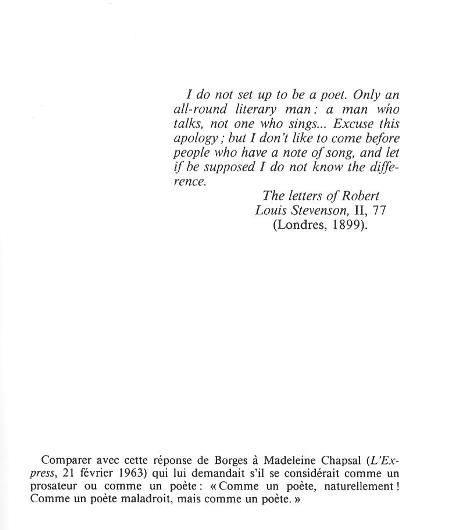
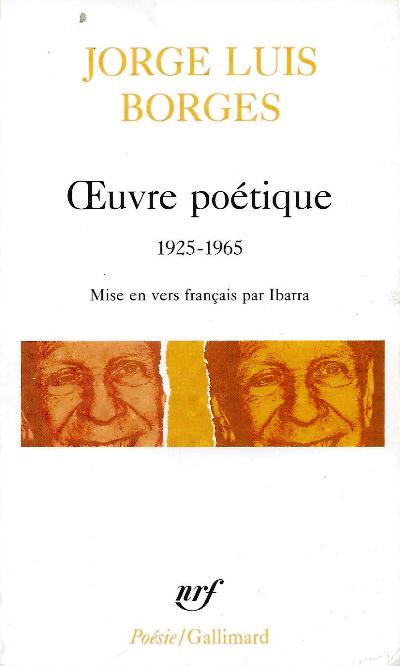
Câu
tiếng Anh, ở đầu cuốn thơ, có 1 từ sai. Gấu cứ nghĩ, sách
Tây, làm sao sai, mà sai thật, và được 1 vị độc
giả chỉ cho thấy.
Nhân đây, xin tạ lỗi. NQT Câu của Borges, cũng được Norman Thomas Di Giovanni trích dẫn làm đề từ cho cuốn do ông biên tập và dịch thuật: I do not set up to be a poet. Only an all-round literary man: a man who talks, not one who sings. . . . Excuse this little apology for my muse; but I don't like to come before people who have a note of song, and let it be supposed I do not know the difference. The Works of Robert Louis Stevenson, Vailima Edition, XXII, 42 (London, 1923)
"Nói cho cùng,
tất cả chúng ta đều cố gắng là thi sĩ. mặc dù những
thất bại, tôi vẫn tiếp tục muốn là một thi sĩ." I do not set up
to be a poet. Only an all-round literary man: a man who talks, not one
who sings ... Excuse this apology .. but I don't like to come before people
who have a note of song, and let if be supposed I do not know the
difference. Tôi không
muốn làm nhà thơ. Comparer avec cette réponse de Borges à Madeleine Chapsal (L'Express, 21 février 1963) qui lui demandait s'il se considérait comme un prosateur ou comme un poète: « Comme un poète, naturellement! Comme un poète maladroit, mais comme un poète. » Và trả lời
Madeleine Chapsal (L'Express,
21 février 1963)
Cuốn này,
do Anthony biên tập và viết Tựa, cũng có 1 bản dịch
bài Golem. THE GOLEM
If (as the Greek asserts in the Cratylus) The name is archetype to the thing, The rose is in the letters of "rose" And the length of the Nile in "Nile." Thus, compounded of consonants and vowels, There must be a terrible Name, which essence Ciphers as God and Omnipotence Preserves in consummate letters and syllables. Adam, and the stars, knew it In the Garden. The iron rust of sin (Say the cabalists) has effaced it And the generations have lost the word. The artifices and candor of man Are endless. We know that there came a day On which the People of God sought the Name In the vigils of the ghetto: The memory is still green and vivid- Not in the manner of other memories like Vague shadows insinuated in a vague history- Of Judah Lion, rabbi of Prague. Burning to know what God knew, Judah Leon gave himself up to permutations Of letters and complex variations: And at length pronounced the Name which is the Key, The Portal, the Echo, the Host, the Palace, Over a doll which, with torpid hands, He wrought to teach the arcana Of Letters, Time, and Space. The simulacrum raised its heavy Lids and saw forms and colors It did not understand, lost in a din, And attempted fearsome movements. Gradually it saw itself (even as we) Imprisoned in that sonorous net Of Before, After, Yesterday, While, Now, Left, Right, I, Thou, Those, Others. (The cabalist who officiated as divinity Called his farfetched creature "Golem": These truths are related by Scholem In a learned passage of his volume.) The rabbi explained the universe to him (This is my foot; this is yours; this, the rope) And, after many years, taught the aberration To sweep the synagogue, as best he might. There must have been some error in graphics Or in articulating the Sacred Name: For despite the most bizarre wizardry The apprentice man never learned to talk. Its eyes-less a man's than a dog's, And even less a dog's than a thing's- Would follow the rabbi through the equivocal Twilight of the dim unworldly retreat. There was something too untoward in the Golem For at his approach the rabbi's cat Would hide. (This cat does not appear in Scholem But I intuit it across all these years.) Raising its filial hands to God It copied the devotions of its god Or, stupefied and smirking, it would bend Into the concave salaams of the Orient. The rabbi gazed fondly on his creature And with some terror. How (he asked himself) Could I have engendered this grievous son, And left off inaction, which is wisdom? Why did I decide to add to the infinite Series one more symbol? Why, to 'the vain Skein which unwinds in eternity Did I add another cause, effect, and woe? At the hour of anguish and vague light He would rest his eyes on his Golem. Who can tell us what God felt, As He gazed on His rabbi in Prague? -Translated by ANTHONY KERRIGAN |
